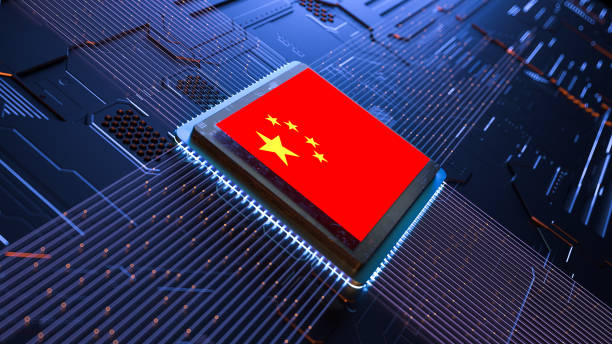China’s vision to shape global internet governance
Posted By Nathan Attrill and Audrey Fritz on November 30, 2021 @ 10:30

The Chinese Communist Party’s foreign influence work is not reduced [1] to one single dedicated organ; instead, state, party and military agencies have fronts that engage in influence operations and are led by CCP’s top leadership. Identifying the leaders responsible for coordinating these systems of organs helps to understand how the influence work is being carried out.
As we explain in our new ASPI report, China’s cyber vision [2], cyber policy in China is developed and implemented within a highly organised, national policy system. The Cyberspace Administration of China (CAC), a new interagency regulator responsible for managing internet information and content throughout the country, has its roots in the former Party Office of External Propaganda.
Today, the director of the State Internet Information Office (SIIO; the state name for the CAC), Zhuang Rongwen, simultaneously serves as the deputy minister of the Central Propaganda Department, indicating the ability of the propaganda apparatus to harness greater control over online content.
Indicating the overlap between the propaganda and cyber systems, China’s recent efforts [3] to build a ‘civilised’ internet seek to use the internet as a platform for disseminating party ideology. Zhuang announced that these efforts were critical in building a ‘modern socialist country’.
As an agency that’s now at the forefront of work to achieve President Xi Jinping’s vision of turning China into a ‘cyber superpower’ and using that power to shape domestic and international discourse, the close ties the CAC has to the Central Propaganda Department raise critical questions about the intentions of the agency as it aims to turn its cyber governance system into a model for others in the international community.
Under the CCP’s strategy to become a cyber superpower, China must have the ability to shape cyberspace by setting the rules, values and norms of the internet. There’s an acknowledgement by the CCP, however, that China can’t yet do that unilaterally.
Consequently, cyber power for Beijing requires developing and harnessing China’s technological capabilities to achieve self-reliance in addition to manufacturing an international consensus on its ideas about global internet governance.
The goal of China’s quest for cyber superpower status is ultimately for the internet outside of Beijing’s jurisdiction to eventually adapt to the economic development, social management and national security priorities of the CCP.
To work towards this goal, China’s cyber policy system has adopted practices that aim to co-opt international organisations and cultivate foreign allies. Those practices include CCP institutions hosting international conferences and exchanges to promote and build support for two related concepts: ‘internet sovereignty’ and a ‘community of common destiny for cyberspace’. Showing other states how they can use cyberspace to shape and repress dissenting voices in their own societies is a part of those co-opting strategies.
The World Internet Conference is one forum that aims to build international consensus on the CCP’s vision for the internet, operating under the CCP’s ideal that countries should cooperate to strive to build a community of a common destiny for cyberspace.
By hosting the World Internet Conference and developing other platforms, the CCP claims that it’s able to ‘promote fairer and more equitable global internet governance’. Under the concept of building a community of common destiny for cyberspace, Xi proposes providing ‘Chinese solutions for global internet development and governance’. This is a China-centred vision for cyberspace, just as the Belt and Road Initiative is a China-centred vision for the world’s economy.
Under Xi’s proposal for global shared governance, China would have access to international governance mechanisms and platforms for controlling and monitoring cyberspace. If implemented, that would have significant ramifications for the world’s internet freedoms.
As Xi mentioned in a speech in 2015, the internet is a powerful tool for information dissemination and social governance (also called ‘social management’). Social management relies on shaping, managing and controlling the operating environment, which would be enabled through Xi’s concept of shared governance of cyberspace.
When approaching the topic of internet co-governance and development strategies with China, countries should consider the future of cyberspace and what information should be shared, and even controlled, by countries such as China.
Article printed from The Strategist: https://www.aspistrategist.org.au
URL to article: https://www.aspistrategist.org.au/chinas-vision-to-shape-global-internet-governance/
URLs in this post:
[1] reduced: https://sinopsis.cz/wp-content/uploads/2021/11/it0.pdf#page=9&zoom=100,185,893
[2] China’s cyber vision: https://s3-ap-southeast-2.amazonaws.com/ad-aspi/2021-11/Chinas%20cyber%20vision.pdf?VersionId=M0ePH4Ij3w7WRJrLlhyxVvt269MWSYOs
[3] recent efforts: https://www.reuters.com/world/china/china-regulator-says-will-step-up-efforts-build-civilised-internet-2021-10-27/
Click here to print.